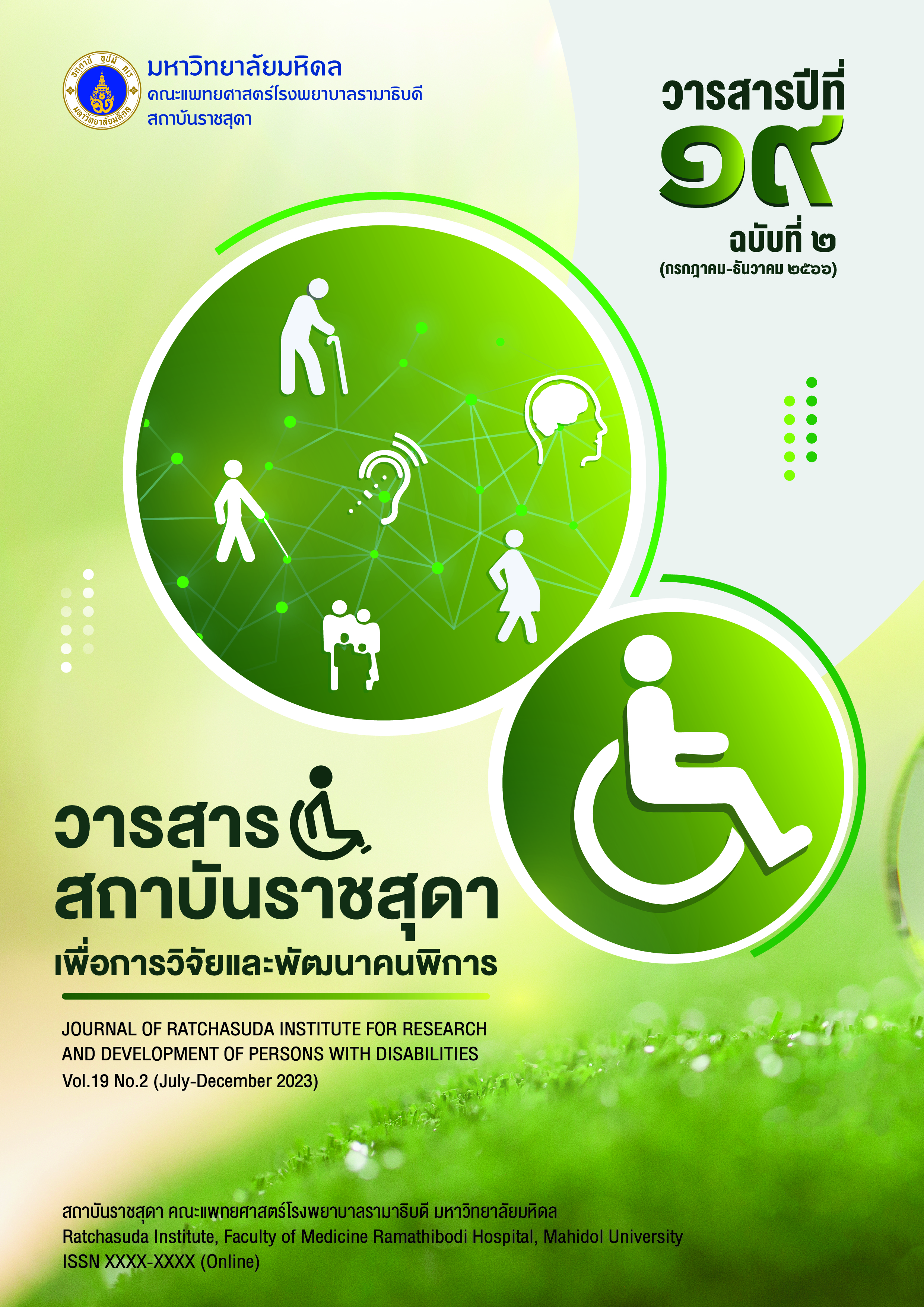The Development of E-Learning on Topic of Impact of Foreign Education to Thai Deaf Education for Undergraduate Students
Keywords:
E-learning, Undergraduate Students, Impact of Foreign Education to Thai Deaf EducationAbstract
The objectives of this study were (1) to develop an e-Learning Courseware on Topic of Impact of Foreign Education to Thai Deaf Education for undergraduate students with hearing impairment; (2) to study the learning achievement in pretest and posttest of undergraduate students with hearing impairment who learn with
e-Learning Courseware on Topic of Impact of Foreign Education to Thai Deaf Education; and 3) to study the students’ satisfaction with e-Learning Courseware on Topic of Impact of Foreign Education to Thai Deaf Education for undergraduate students with hearing impairment. The sample consisted of 12 students of the Bachelor of Education Program in Deaf Education enrolled to a two-years course on Introduction to Deaf History and Culture at Ratchasuda College, Mahidol University in the first semester of the academic year 2022, obtained by simple random sampling. It was used the one group pretest-posttest design. The employed research instruments comprised 1) an e-Learning Courseware on Topic of Impact of Foreign Education to Thai Deaf Education, 2) a learning achievement test through e-Learning Courseware on Topic of Impact of Foreign Education to Thai Deaf Education; and 3) a questionnaire on students’ satisfaction with e-Learning Courseware on Topic of Impact of Foreign Education to Thai Deaf Education. Statistics employed for data analysis were the mean, standard deviation, and t-test. The research findings were as follows: 1) the result on overall evaluation of expert opinions to e-Learning Courseware on Topic of Impact of Foreign Education to Thai Deaf Education for undergraduate students was at the highest level; 2) the students’ score in the posttest showed higher than pretest significantly at the .05 level; and 3) the students were satisfied with the e-Learning Courseware at highest level.
Downloads
References
Boonyuen, P., Suphajanya, P., Songphacha, P., Changwarangkul, N., & Komonsing, S. (2022). Research and development on online lessons in geography using learning management system for students with hearing impairment in high school. Journal of Ratchasuda College for research and development of persons with disabilities, 18(1), 37-59. https://so03.tci-thaijo.org/index.php/RSjournal/article/view/261523
Farhan, W., & Razmak, J. (2022). A comparative study of an assistive e-learning interface among students with and without visual and hearing impairments. Disability and rehabilitation: assistive technology, 17(4), 431-441. https://doi.org/10.1080/17483107.2020.1786733
Insa-ard, S. (2018). Design e-learning for development of higher-order thinking skills. Se-education.
Khlaisang, J., & Koraneekit, P. (2016). Designing web for instruction: Applied guidelines for blending, e-learning and online learning model. Chulalongkorn University.
Kulnattarawong, T. (2018). The effect of using e-learning courseware with scaffolding to develop learning achievement of undergraduate students. Veridian E-Journal, Silpakorn University, Thai edition, humanity, social sciences and art, 11(3), 2219-2234. https://he02.tci-thaijo.org/index.php/Veridian-E-Journal/article/view/159696/115431
Srisa-ard, B. (2002). Preliminary research (7th ed.). Suweerivasarn.
Srisomboon, K. (2020). Development of e-learning on man and environment for undergraduate students. Journal for social sciences research, 11(2), 127-146.
Downloads
Published
How to Cite
Issue
Section
License
Copyright (c) 2023 Journal Of Ratchasuda Institute for Research and Development of Persons With Disabilities

This work is licensed under a Creative Commons Attribution-NonCommercial-NoDerivatives 4.0 International License.
บทความที่ได้รับการตีพิมพ์เป็นลิขสิทธิ์ของวารสารสถาบันราชสุดาเพื่อการวิจัยและพัฒนาคนพิการ






